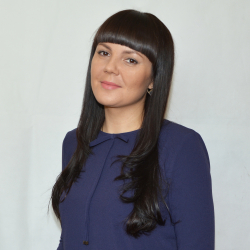Просмотр содержимого документа
«Проектная работа по английскому языку "Нобелевские лауреаты - Павлов Иван Петрович"»

Ivan Petrovich PAVLOV
Prepared By Azizova Sabina

Born on September 26, 1849 in Ryazan.
He died on February 27, 1936 in Leningrad.
Scientific field: physiology and medicin
Known as the Creator of the science of higher nervous activity and ideas about the processes of regulation of digestion; founder of the largest Russian physiological school
Awards and prizes: Nobel prize in physiology or medicine (1904)

Pavlov's parents were Ministers of the Church. After graduating from the Ryazan theological school in 1864, Pavlov entered the Ryazan theological Seminary.

Pavlov conducted experiments with imaginary feeding (cutting the esophagus so that food does not get into the stomach), thus making a number of discoveries in the field of reflexes of gastric juice. For 10 years, Pavlov, in essence, re-created the modern physiology of digestion

In 1903, 54-year-old Pavlov made a report at the XIV International medical Congress in Madrid. And the next year, in 1904, the Nobel prize for the study of the functions of the main digestive glands was awarded to Pavlov — he became the first Russian Nobel laureate
The medal, awarded to the winner Nobel prize
Diplom and gold medal Nobel prize winner 1904

In the Madrid report, made in Russian, Pavlov first formulated the principles of physiology of higher nervous activity. Such concepts as reinforcement, unconditional and conditioned reflexes have become the basic concepts of the science of behavior
Pavlov's dog, Pavlov Museum, 2005

In 1919-1920, during the period of devastation, Pavlov received an invitation to move to Sweden, where he was promised to build such an institution, what he wants. Pavlov said that he will not leave Russia. This was followed by a corresponding resolution of the Soviet government, and the Pavlov built a magnificent Institute in Koltushi near Leningrad, where he worked until 1936

February 27, 1936 Pavlov dies of pneumonia. He was buried on the "literary bridges" Volkov cemetery in St. Petersburg
Postage stamp of USSR,
dedicated to Pavlov, 1991

Thank you for your attention!


























